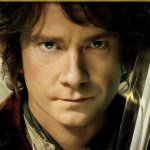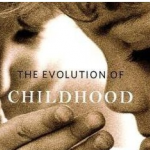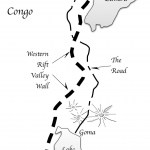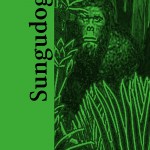Social Sciences
"Dogs are our link to paradise. They don't know evil or jealousy or discontent. To sit with a dog on a hillside on a glorious afternoon is to be back in Eden, where doing nothing was not boring -- it was peace." -Milan Kundera
It's the holiday season, and for most of us, that means spending time with loved ones, having some type of feast-day, and in many cases, giving and sharing gifts with one another. To spread a little holiday cheer, I present to you my all-time favorite Christmas song, Run-DMC's classic,
Christmas In Hollis.
Those of you who've been following Starts With A Bang since the…
The Hobbit, the movie, opens tomorrow in a theater near you. This is based on J.R.R. Tolkien's book, The Hobbit, or There and Back Again, which chronicles the adventure of Bilbo Baggins. To many, this constitutes a prequel to the Lord of the Rings trilogy, which many read (or saw in movie form) before finding out about The Hobbit; this prequel-esque aspect of The Hobbit is reified in the production of the movie following the distribution of the Lord of the Rings movie. Notably, however, The Hobbit was written first, and The Lord of the Rings is a proper sequel. (Interestingly, the Hobbit was…
Human infants require more care than they should, if we form our expectations based on closely related species (apes, and more generally, Old World simian primates). It has been said that humans are born three months early. This is not accurate. It was thought that our body size predicted a 12, instead of 9 month gestation, and some suggested that Neanderthals would have had such, but this research conclusion has been set aside based on new analysis. But it is still true that developmentally, human children do not reach a stage of development that allows some degree of self care for a…
Top Ed-Tech Trends of 2012: MOOCs
The future of libraries is...
The impact of open access on librarians
A People’s History of MOOCs
The Greatest Course You’ll Ever Teach
Why Are Cable Companies Forcing People to Turn to Piracy? (or not.)
How Historians Earn Tenure and The 5-Year Humanities Ph.D.
Failing to Make the Sale (researchers don't promote their own impact on society)
Cautionary Tales About Collective Rights Organizations
Let's (Not) Do the Numbers (why do students need to use the library?)
Where is Library Technology going?
Build Your Own Open Access Journal: An Interview with Rob…
Alternate titles for this post:
"It turns out, it is a little like a priesthood."
"Join us. Join us. Join us. Braaainzzzzz"
"Imma gonna let you finish, but first I think you need to get your Wellies wet."
...
[Modified repost]
In a library, there is a spatial relationship between knowledge and books or journals, and there is a sense of completeness about it. I'm thinking in particular of the Tozzer library, one I spent a fair amount of time in. I would go to the basement of the library and the entire ancient world (this is an anthropology library) was arrayed in a set of shelves to the…
I finally got around to playing the Walking Dead videogame this weekend, and I'm already hooked. "Video game" is a bit of a misnomer really, as it's more a piece of interactive fiction. You must guide your character, Lee Everett, through the dangers and dilemmas of a rapidly disintegrating society where the dead are returning to life. The decisions you make will have repercussions, both for your own character and the others you meet, and often you'll be forced to make choices that are not simple good versus bad, but bad versus bad. I've only played it for a couple of hours, and…
It is not possible for anyone to understand every policy-important aspect of scientific knowledge at the level of detail necessary to accept that knowledge as valid, or to defend it against the evil anti-science denialists. So what is a skeptic to do?
[a timely repost]
Real science happens at the very edge of knowledge. If you go do real science for a while ... a few weeks ... then go back to science geek land where you normally live (and I know you live there because you are reading this blog) and read about the same topic you were exploring in real science land, you will see two…
This post is part of The Pump Handle's Public Health Classics series.
By Sara Gorman
Does cigarette smoking cause cancer? Does eating specific foods or working in certain locations cause diseases? Although we have determined beyond doubt that cigarette smoking causes cancer, questions of disease causality still challenge us because it is never a simple matter to distinguish mere association between two factors from an actual causal relationship between them. In an address to the Royal Society of Medicine in 1965, Sir Austin Bradford Hill attempted to codify the criteria for determining…
Atheist Voices of Minnesota: an Anthology of Personal Stories was released earlier this year. It is chock full of personal stories about the journey from some place to atheism, written by Minnesota authors such as Norman Barrett Wiik, Elizabeth Becker, Kenneth Bellew, Ryan Benson, August Berkshire, Donald L. Boese, Ryan Bolin, Jill Carlson, Justin M. Chase, Greta Christina, Linda Davis, Andrew Downs, Shannon Drury, Anthony Faust, Paul Gramstad, Mike Haubrich, Kori Hennessy, Peter N. Holste, Michelle M. Huber, Eric Jayne, George Kane, Greg Laden, Bill Lehto, M. A. Melby, PZ Myers, Robin…
Via Ed I see that Christopher Monckton, the fake expert in climate change who has been repeatedly told by Parliament to stop calling himself an Member of the House of Lords,, claims he's the inventor of a magical disease cure of HIV, MS, flu and the common cold, and recently a birther, has now submitted an affidavit (read here) pushing his bogus birther stats argument. The only problem? I think one could argue he's now opened his factually-questionable statements to legal scrutiny. From his affidavit:
I am over the age of 18 and am a resident of the United Kingdom. The information herein…
Sungudogo, the highly entertaining and exciting adventure novella set in the Central African rain forest, which provides the Skeptics Movement with its own Origin Myth, has been available on the Kindle for a while now, but it is now also available on Smashwords, HERE.
...
Sungudogo is a little known zoological mystery, an “undiscovered” primate living in the remote and rugged region of the eastern Congo, where the Central African Rain Forest fringes the high walls of the western edge of the Great Rift Valley.
Sometimes called the “fourth African ape,” Sungudogo is not a Gorilla, not a…
I wrote this five years ago, but I think all the discussion of free-range parenting merits a reconsideration. My kids are now 7, 9, 11, and 12, and they range much further and freer than they did five years ago, but still I'm more careful than my parents - not because of fear of strangers, but because of the number and speed of cars.
My neighbor and I were discussing a favorite children's book the other day. The book is Robert McCloskey's classic _Blueberries for Sal_ in which a mother human and her daughter go blueberrying, and have a minor mix up with a mother bear and her cub. The…
In which I use my double license as a physicist and a science fiction fan to engage in some half-assed futurism spinning off Chris Hayes's much-discussed book.
-------------
I don't read a lot of political books, because I tend to find them frustrating. They're usually surprisingly ephemeral, trying to spin Deep Meaning out of a collection of recent events that are highly dependent on short-term context. They also tend to be much better at identifying problems than suggesting plausible solutions, coming off like that famous Sidney Harris cartoon with a bunch of equations on the left side of a…
If you're a skeptic and supporter of science-based medicine (SBM), as I am, no doubt there are times when you ask yourself in exasperation, frustration, or curiosity just what the appeal of quackery is to so many people. Why do people fall for this stuff? you no doubt ask yourself at times. Certainly I do sometimes, and even though I know a lot about the cognitive shortcomings that we humans all share that lead to confirmation bias, confusing correlation with causation, mistaking placebo effects and regression to the mean for real therapeutic effects, and poor observational skills, sometimes…
A week ago, one of our former foster sons celebrated his ninth birthday. He's now living with family in another state, and we have kept in regular touch. We sent a gift, a card with some pictures we thought he'd enjoy, and on the afternoon of his birthday, we tried to call and wish him happy, but the phone had been disconnected.
This was not a total shock. It had happened once before, during the process of getting him ready to move. His family loves him and he's very happy there - but they live very, very close to the economic margin. Both of the adults in his…
In which I get a little rant-y about yet another proud display of ignorance from the Washington Post's education blog.
------------
Some time back, I teed off on a school board member who couldn't pass a simple math test, who proudly told the world about his ignorance via a post at the Washington Post's education blog. Bragging about ignorance is apparently a Thing for that blog, which recently offered another fine example, with a parent complaining about his son being forced to take chemistry. The author, "nonprofit executive" David Bernstein, is a former philosophy major, who evidently didn…
...Sungudogo is a little known zoological mystery, an “undiscovered” primate living in the remote and rugged region of the eastern Congo, where the Central African Rain Forest fringes the high walls of the western edge of the Great Rift Valley.
Sometimes called the “fourth African ape,” Sungudogo is not a Gorilla, not a Chimpanzee, not a Bonobo, and possibly not even real.
Years ago, Sungudogo drew the interest of the world famous primatologist Dieter Phillips, who was funded by a secret society of “scholars and gentlemen” to launch an expedition to determine the veracity of this mysterious…
C. Scott Findlay, associate professor of biology at the University of Ottawa and a visiting research scientist at the Ottawa Hospital Research Institute, had a sobering article in the Toronto Star a few days ago.
It's titled Governing in the dark: Ottawa’s dangerous unscientific revolution and it fits right in with my recent seemingly endless catalogue of how the current Canadian Conservative government is systematically undermining the free inquiry in Canada, scientific and otherwise. In the article Findlay first lays out some of the recent abuses and then gives four reasons why Canadians…
"History is full of people who out of fear, or ignorance, or lust for power has destroyed knowledge of immeasurable value which truly belongs to us all. We must not let it happen again." -Carl Sagan
From the streets and people of our hometown to the nations, planets, stars and galaxies (and beyond) of our Universe, there's an immensity of knowledge to be gained from a single human lifetime, if only we have the courage to let go of our preconceptions and discover it. Laura Viers might tell you that in her own way in her 2005 song,
Galaxies.
But no one is born with this knowledge; it takes hard…
I just watched a funny entry submitted for the 2012 American Physiological Society's (APS) video contest on some of the differences betweens humans and dogs. The authors of the video were Nate Brault and Thomas Szamocki from Beloit College. It is also available in the APS Archive of Teaching Resources, a searchable archive of teaching resources and activities to help teach K-12 as well as college students about physiology.




